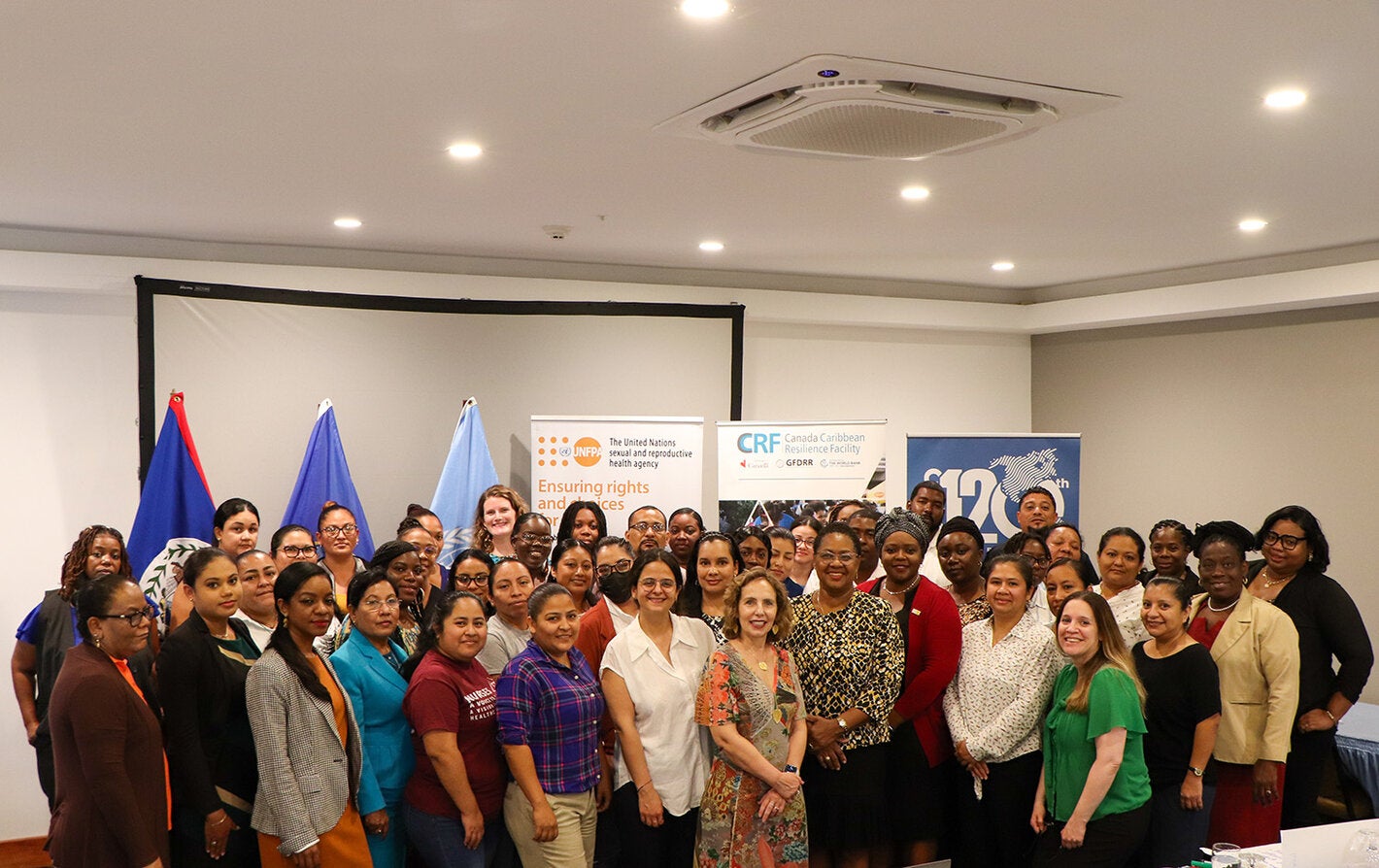
Belize City, Belize, March 2, 2023 - 35 professionals in Belize are better equipped to prevent and respond to violence against women and girls during health emergencies. With funding support from the Canada Caribbean Resilience Facility (CRF) of the World Bank and the Global Facility for Disaster Reduction and Recovery (GFDRR), the Pan American Health Organization/World Health Organization (PAHO/WHO) and the United Nations Populations Fund (UNFPA) partnered with the Ministry of Health and Wellness (MoHW), the Ministry of Human Development, Families and Indigenous Peoples’ Affairs and the Ministry of Sustainable Development Climate Change and Risk Disaster Management to conduct the training which was completed this week.
According to the WHO, one in three women will experience either physical and/or sexual intimate partner violence or non-partner sexual violence in her lifetime. Violence against women continues to be a major public health problem and a violation of women’s human rights. Belize’s Crime Observatory reported a steady increase in domestic violence complaints when COVID-19 lockdown measures were introduced compared to when measures were relaxed. Health emergencies such as the COVID-19 pandemic create opportunities for an increase of violence against women and girls especially when access to the needed care may be restricted.
“Violence has serious short- and long-term consequences on women’s physical, sexual and reproductive, and mental health as well as on their personal and social well-being and that of their families and communities,” explained Dr. Karen Lewis-Bell, PAHO/WHO Representative in Belize. “It is important that healthcare workers understand, not just their role in responding to violence, but that they build the necessary skills to be able to provide an effective response. With proper training, healthcare providers can identify and provide life-saving support to and care for survivors”.
Aligned to the commitment of the 2030 Agenda for Sustainable Development to “leave no one behind”, priority is given to addressing social factors that negatively influence health outcomes and behaviour, gender inequities being one of them. It is understood, however, that different actions from multiple sectors are central to violence prevention and response.
Tisa Grant, Liaison Officer Officer of UNDP stated: “Encouraging coordinated service delivery for survivors requires engagement with the different ministries. Fostering multisectoral collaborations builds rapport and promotes understanding of the responsibility of each partner in preventing and responding to gender-based violence”.
A hybrid format was used for the training: Virtual sessions focused on introducing technical content, while the face-to-face sessions improved competencies and training skills. By using a training of trainers approach, these participants who have acquired the technical competency and capacity to provide fist-line support to survivors of gender based-violence (GBV) are expected to conduct similar trainings in their districts.



